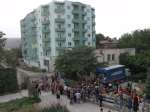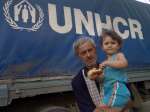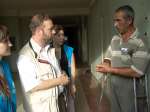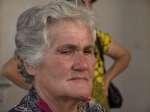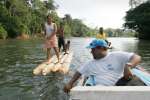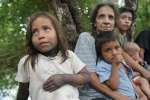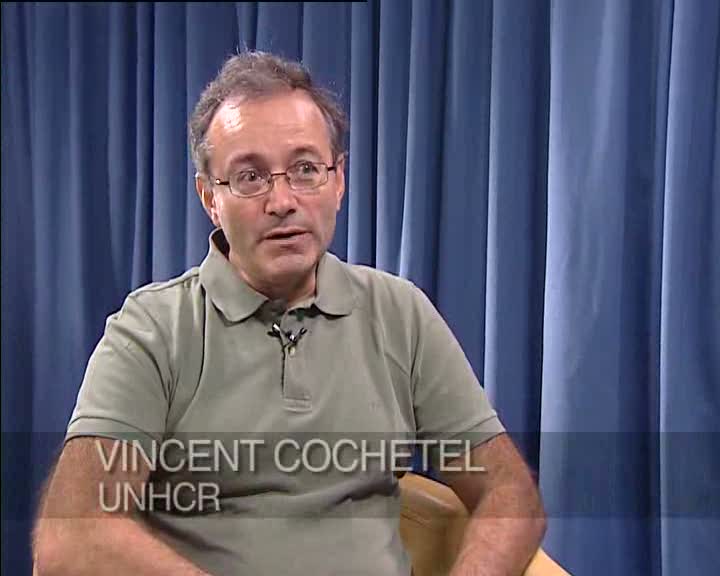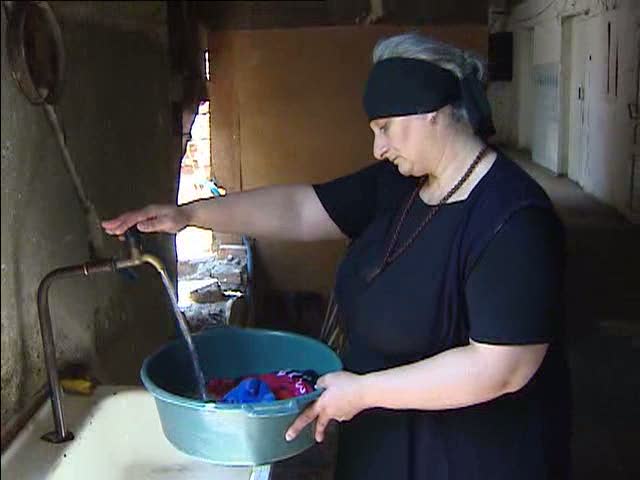Chechen refugees in Pankisi Gorge resume normal life after Georgia scare
News Stories, 1 October 2008
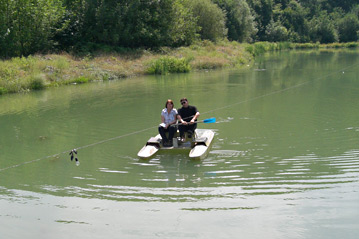
DUISI, Georgia, October 1 (UNHCR) – Chechen refugees feared the worst during August's conflict between the Russian Federation and Georgia over the breakaway South Ossetia region, but their homes in the Pankisi Gorge were left untouched and life is returning to normal in the border region.
"Honestly, I thought we were going to be bombed," said Saipudi,* a man in his forties who lives in a collective centre in Duisi, one of eight villages in this broad valley region close to north-east Georgia's mountain border with Russia's Chechen Republic. "Our family home back in Chechnya has been destroyed twice. We thought this would be our third time. Thank God we were not affected," his wife, Eliso,* added.
Their concerns were shared by other Chechen refugees and at least 10 families tried to escape into neighbouring Turkey or Azerbaijan, but were turned away at the border because they had no travel documents. They eventually returned to the Pankisi Gorge.
When the fighting erupted on August 8, the Pankisi Gorge was awash with rumours. There were reports that military aircraft had been sighted and that gunfire had been heard. And when the head of UNHCR's field office in nearby Akhmeta was called to Tbilisi, some of the Pankisi refugees feared the fighting would soon reach them.
UNHCR's local staff tried to ease the fears of the refugees, including ethnic Chechen and ethnic Kist, a Chechen tribe that settled in Georgia more than 200 years ago. But it was difficult to calm people haunted by their past flight from their homeland and worried about having to move again.
With the conflict and panic over, people here are going about their normal business once more in the Gorge. Income generation projects funded by the UN refugee agency and run by the Norwegian Refugee Council are back on track, bringing benefits both to the refugees and the general economy of the entire Pankisi Gorge.
"All these businesses serve the local and refugee populations of the Pankisi Gorge, sparing them long walks or expensive rides to the town of Akhmeta.," said Peter Nicolaus, UNHCR's representative in Georgia. They include the valley's first grocery store, run by refugee women, a hairdresser's salon and a workshop producing furniture.
"The businesses not only feed the owners and their families, but also create job possibilities for others. Also, the money boosts the local economy in the valley rather than pouring out to Akhmeta," Nicolaus added. UNHCR gives between 3,000 and 5,000 Georgian lari (US$2,100-3,600) to refugee projects selected for funding.
Some Chechen refugees participating in the programme have introduced new trades to the region. "Back home in Chechnya, I was a beekeeper," said Movldi,* as he poured his honey into jars for sale. "I have trained three locals to start their own honey production. The Pankisi Gorge is a superb environment for beekeeping and there is still room for more hives."
Movldi admitted that he had been concerned about the fighting, but added that he never seriously considered fleeing. "This is where my bees are. This is my home now," he said, before treating visitors to three different kinds of delicious honey.
Adlan* is another Chechen refugee with an innovative trade. He has introduced fish farming to the valley and says it is a fantastic environment for rearing carp and the popular Caucasian tolstolobik. He expects his first really big harvest next year, but locals said that the fish he provided for World Refugee Day celebrations in the Pankisi Gorge last June were the best they had ever eaten.
* Names changed for protection reasons
By Melita H. Sunjic in Duisi, Georgia






